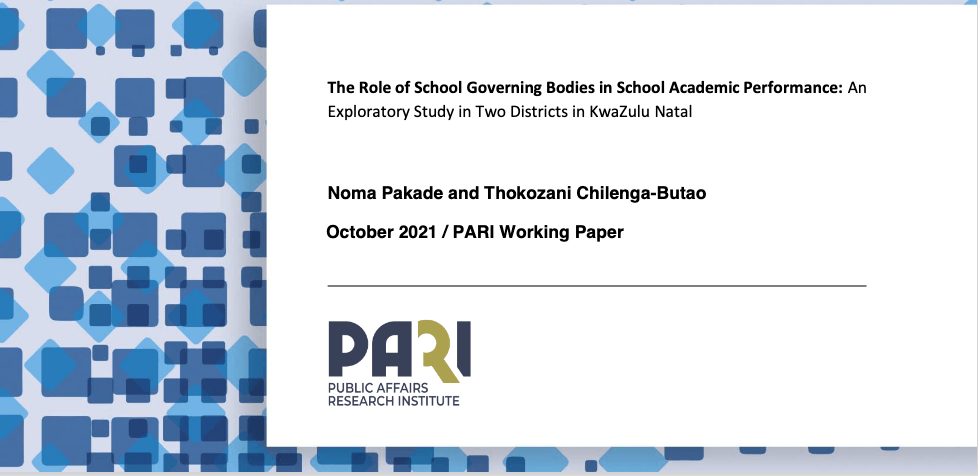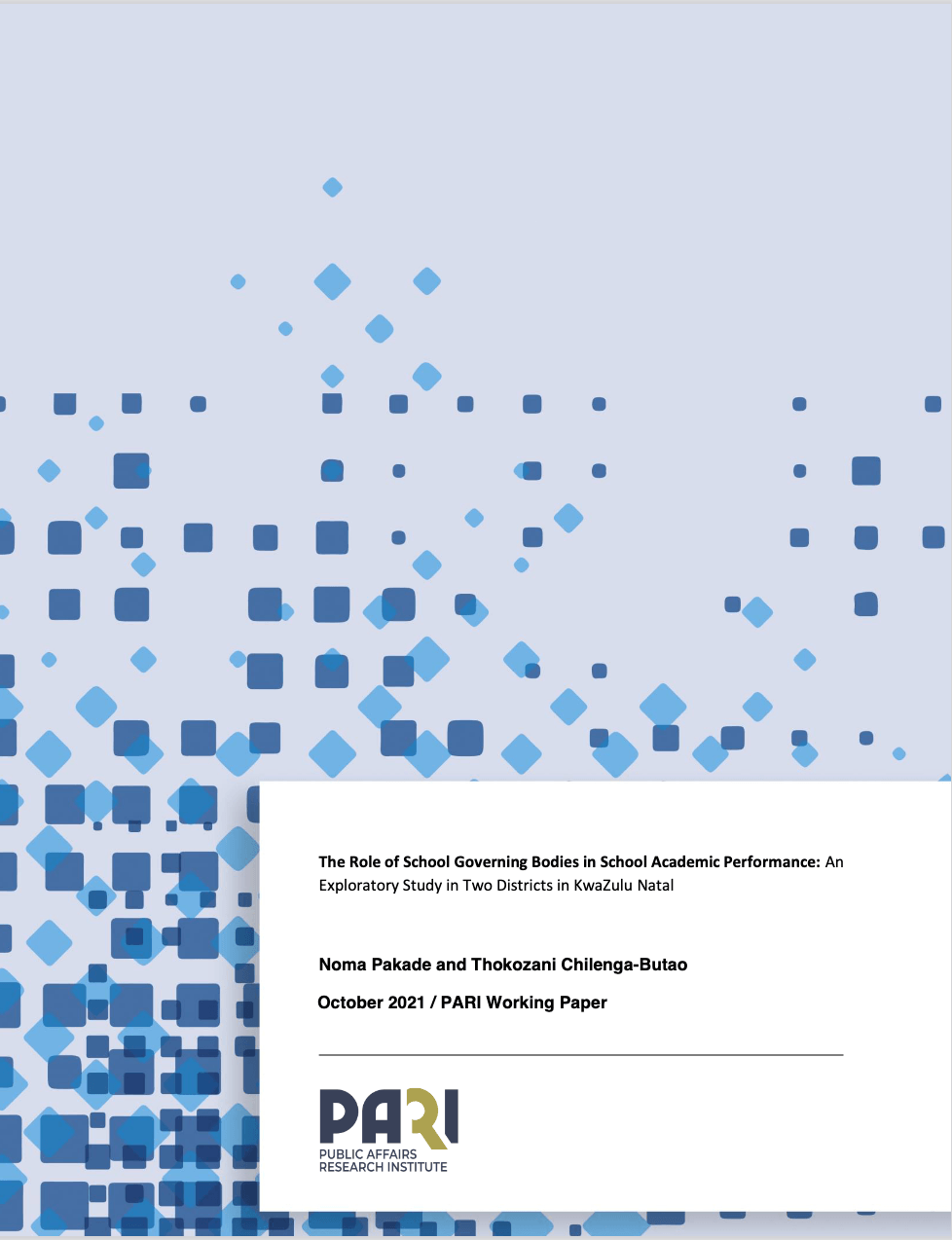A working paper by Noma Pakade and Thokozani Chilenga-Butao
School governing bodies (SGBs) are the nerve centres of schools in South Africa. Their main purpose is to create and maintain school policies, provide support to principals and other staff, and oversee general governance issues that are in the best interest of schools and their learners. SGBs have been afforded significant powers by the South African Schools Act of 1996 (SASA). SASA sought to set the parameters for improving the access and quality of education in South Africa post-1994, and also to provide space for parents, learners, and community members to participate in the governance of schools. Thus, through SASA, education governance has been significantly decentralised to SGBs (Bagarette 2011, Woolman and Fleisch 2008, Du Plessis 2020). The aim of decentralising education governance is to improve the quality of basic education and performance by seeking and inculcating the best interests of learners and schools through wider school community participation. However, SGBs’ ability to play an effective role in the provision of basic education is significantly influenced by the conditions of the different schools’ communities.
Using data collected through policy analysis and semi-structured interviews from three districts in KwaZulu Natal, this working paper demonstrates that the decentralisation of education governance to SGBs is ineffective in underperforming schools (Du Plessis 2020). The SGBs are not functioning as intended, as the literature illustrates, even in underperforming schools as the working paper shows. Despite the overarching legislation that empowers SGBs and the participatory democracy approach to education governance in schools, school governance remains in a critical condition because there is no targeted and strategic approach to strengthening the weakest parts of education governance within the education system. Instead, SGBs, particularly in underperforming schools are left to resolve the schooling demands — albeit with limited capacity building and support from district officials — thus consequently increasing the burden of school governance on principals.



